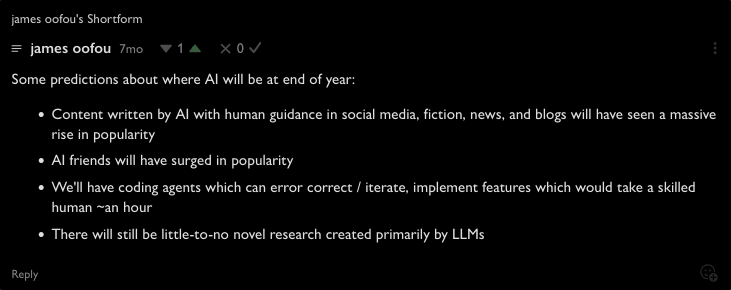Them: “I think X”
You: “That’s wrong because Z”
Them: “I think you’re just disagreeing because you’d not open-minded enough”
You: “What makes you think that?”
Them: “I think it because Y”
What do they say for ‘Y’? That seems the part that actually constitutes their argument and which you will be able to call out if they’re making a mistake.



I guess they’re losing money in the short-term but gaining training data and revenue (which helps them raise funds). It’s not clear to me that this is harming the lab in expectation.